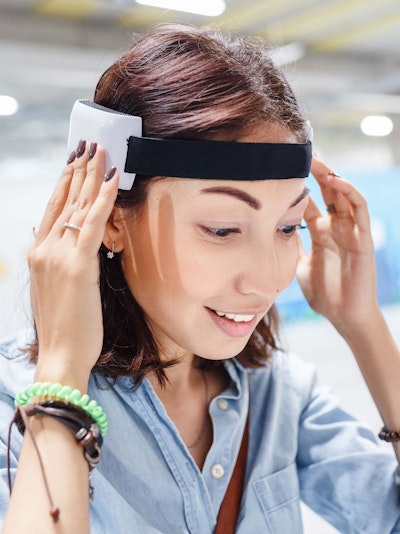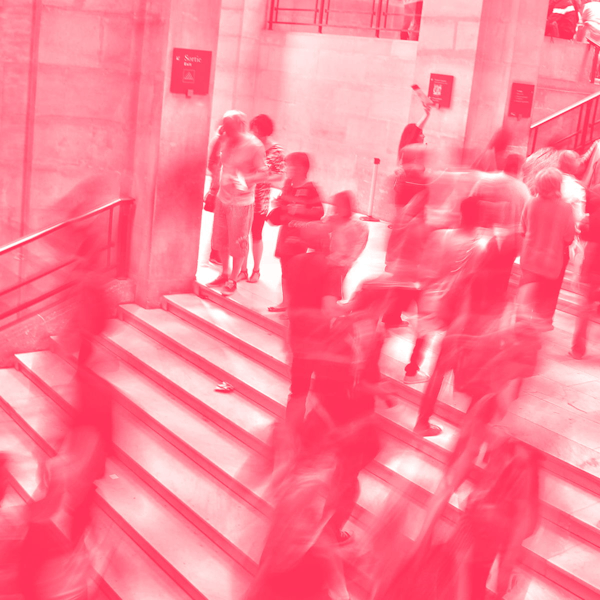Welcome to TechEthosA warm welcome to our second newsletter, dear readerWelcome old and new newsletter subscribers. For our new subscribers, TechEthos is an EU-funded project dealing with the ethics of new and emerging technologies. We are a team of ten scientific partners and six science engagement organisations representing expertise from technological assessment, citizen engagement to ethical advice. |
Our overall goal is to produce ethics guidelines helping the research community to consider ethical and societal values in the earliest phases of technology design and development. This “ethics by design” approach will not only provide value for researchers from academia and industry, but also for related stakeholders such as research funding bodies, research ethics committees, technology users and the overall society. |
We are now in month 14 of our three-year project and are happy to announce the three technology families TechEthos will now focus on and produce ethics guidelines for. |
This newsletter highlights these technologies, the processes we undertook to arrive at such a selection and the next steps we plan to take. We also feature a piece written by Maura Hiney from ALLEA's permanent working group on science and ethics where research ethics and integrity is put under the spotlight and highlight how these processes are being used in TechEthos. The newsletter will also provide information on texts & tools & events that we think you may appreciate as members of the TechEthos community. |
We appreciate your interest in TechEthos. Please do pass on this newsletter to those who you think would like to join this growing community of stewards of ethics-driven emerging technology development. We look forward to the next part of this journey. |
|
|
Introducing the TechEthos technology familiesArticle by Andrea Porcari, Gustavo Gonzalez and Daniela PimponiBased on a wide-ranging horizon scan of new and emerging technologies, TechEthos selected three families of technologies expected to have disruptive socio-economic and ethical implications: Climate Engineering, Digital Extended Reality, and Neurotechnologies. |
|
|
| Climate Engineering Represents a branch of technologies that could mitigate human-induced climate change – from carbon capture to solar geoengineering. Key ethical concerns include irreversibility, social inequality and transparency, for example, the imposition on some communities/countries who may not choose them and responsibility to future generations. |
|
|
Digital Extended Reality A cluster of technologies that could change how people connect with each other and their surroundings in physical and virtual settings. Ethical concerns surround cybersecurity and how these technologies may impact human behavioural and social dynamics, for example, technology mimicking human responses may give rise to responses as though it were actually human, while developments in Extended Reality may lead to undue influence from ‘nudging’ techniques. |
| |
|
| Neurotechnologies A set of technologies that directly involve the human brain in monitoring, assessing, emulating, and manipulating its function, for example, brain-computer interfaces that can support more intuitive control of prosthetic devices and relay sensory information back to users. Ethical concerns include how we can ensure humans retain their free will/autonomy and retain privacy issues on sensitive data. These technologies create further issues around what we call “neurodeterminism” in which people assume our minds are our brains whereas we are the product of so much more, including a lifetime of experiences. |
|
|
Following this selection, the next step will be to perform an in-depth analysis of the ethical, policy, and legal implications and obtain a deep societal understanding of the perception of these technologies families from researchers, industry actors, policymakers, and citizens. This analysis will inform the development of ethical and legal frameworks and support the creation of operational guidelines to assist the research community in integrating ethical concerns and societal values into research protocols and technology design and development. |
|
|
Reviewing the Horizon Scan: Selecting the TechEthos Technology Portfolio Article by Eva Buchinger et.al.We have been excited to share with you the three potentially disruptive technologies that have been chosen as the focus for the TechEthos project. But how did we arrive at our selection? We present a more detailed view into the methodology used to select the TechEthos technologies of focus – the horizon scan. |
| | Spotlight on Research Ethics and Research Integrity for Sustainable InnovationArticle by Maura HineyResearch ethics and integrity is vital in research but how do we ensure research ethics and integrity is seen as the foundation of excellence in research and innovation? And further to this, how do we ensure it is brought to the forefront of technology innovation? |
|
|
Further reads and talksFind below a series of good reads, talks and resources that have inspired us in our work - we think you might find them interesting too. |
|
|
Opinion paperClimate engineering: Don't forget technology has an ethical aspect tooThis opinion paper on climate change published in the International Journal of Information Management argues that climate change might well be the most important issue of the 21st century and that the world’s response, in the form of ‘Climate Engineering’, is of equal pre-eminent importance. Climate engineering brings with it many technological challenges, but this piece highlights the equally important ethical challenges it is likely to raise, such as autonomy, freedom, human rights and much more. |
| | Resource The Societal Readiness Thinking Tool from the EU Project, NEW HORRIZON The Societal Readiness Tool has been produced as a constructive offering to not only complement the shortfalls of Technology Readiness (TR) frameworks but also improve upon other efforts to integrate responsible research and innovation, sustainability, and design thinking in research and innovation cycles. The thinking tool offers practical guidance for researchers who wish to mature the societal readiness of their work and to help align their project activities with societal needs and expectations. |
|
|
Journal issueSocio-economic impact assessments for new and emerging technologiesTaking inspiration from the Horizon 2020 EU project SIENNA, this paper from the Journal of Responsible Technology highlights a specific impact assessment method, the Socio-Economic Impact Assessment (SEIA), in light of new and emerging technologies. This paper covers key aspects of such a process, the challenges that come along with it and provides a conceptual and operational framework in using an SEIA. |
| | Book reviewThinking AI with a hammer. Kate Crawford's Atlas of AI (2021)The recent release of Atlas of AI. written by Kate Crawford, Research Professor at USC Annenberg, showcases the need to look at AI beyond Silicon Valley and offers a material and political perspective on what it takes to make AI and how it centralises power. Anaïs Resseguier from Trilateral Research reviews this landmark piece stating that it is a "radical critique of AI and its many myths, a much-needed and welcome one". |
|
|
For your diary25 March | Online event Children and AI: Risks, Opportunities and the Future Children and artificial intelligence is a timely workshop that brings together experts from academic disciplines such as sociology, psychology, computer science and linguistics, as well as leading figures from regulatory bodies, the charity sector, and child-focused agencies. The event aims to explore the future of online safety, and how to harness the opportunities of language-based AI for children while also ensuring that potential risks are minimised. |
|
|
21 April | Online call Horizon EU Cluster 1 Health single-stage calls Don't miss the Horizon EU call ranging from topics on healthcare, environment and health, and tools and technologies. The aims of this cluster include improving and protecting the health and well-being of citizens of all ages by generating new knowledge, developing innovative solutions and integrating where relevant a gender perspective to prevent, diagnose, monitor, treat and cure diseases. Further aims include developing health technologies, mitigating health risks, protecting populations and promoting good health and well-being in general and at work. |
|
|
03 May - 04 May | Online/in-person event MIT Technology Review conference Join MIT for the return of their technology review conference, which will cover topics on quantum computing, artificial intelligence, security, the metaverse and much more. |
|
|
“Our research clearly shows there are a number of technologies that could profoundly impact our society, in the short to medium time horizon, and in which all major economies are investing significantly. Having the capacity to understand, anticipate and steer the development of these technologies toward “our” needs as a society, is a priority, and yet an often-unmet demand, for many research, industry, policy and civil society players.“Andrea Porcari, Italian Association for Industrial Research |
|
|
The TechEthos project is coordinated by AIT – Austrian Institute of Technology. This newsletter is coordinated by Ecsite – European Network of Science Centres and Museum and distributed by Trilateral Research. Add us to your address book. You are receiving this newsletter because you expressed interest in the project via our website and social media channels, or on grounds of legitimate interest because you work in a field related to the topics covered by our project. You can update your preferences or unsubscribefrom our list at any time. |
|
|
| |












